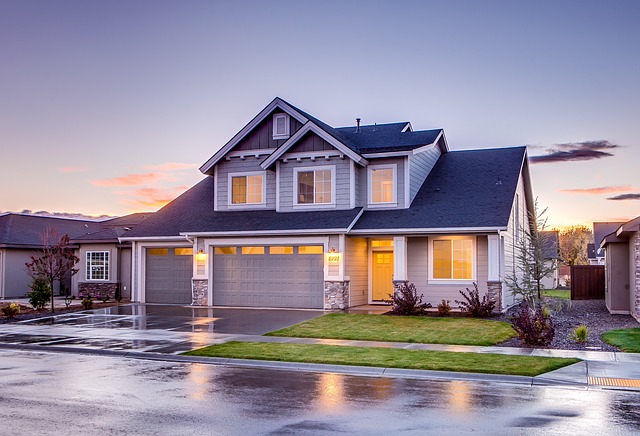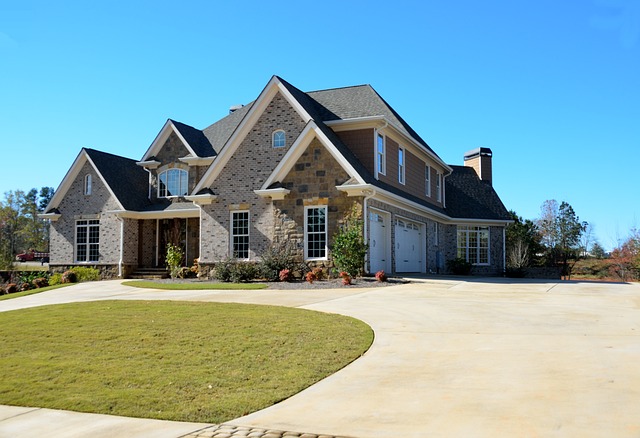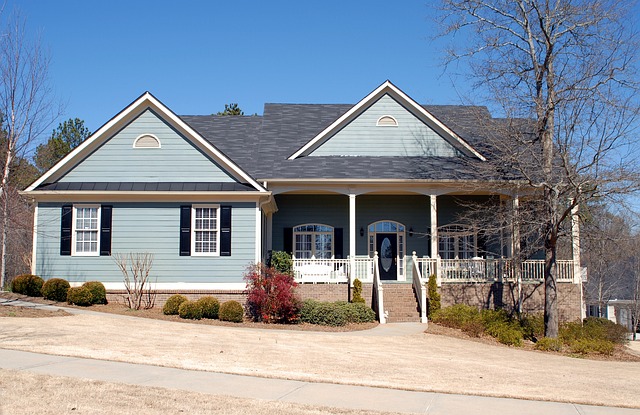The article discusses the importance of tracking the Absolute Sentiment Indicator for Buyers Dependent (ASBD) in Singapore for informed real estate investment decisions. The ASBD measures the sentiment and buying mood of Singaporeans regarding private residential properties, which is a vital indicator of market confidence, influenced by economic health, mortgage rates, and policy changes. A high ASBD indicates a strong buyer demand and a favorable market, ideal for property investments, while a low ASBD suggests a more subdued market that could offer investment opportunities at lower prices. The AbsD Singapore 2nd Property framework, which includes higher Additional Buyer's Stamp Duty (ABSD) rates for second properties, is designed to curb speculative behavior and ensure market stability. Investors should monitor both the ASBD and ABSD regulations in conjunction with economic indicators and interest rates to time their acquisitions effectively. The AbsD Singapore 2nd Property investment is presented as a strategic choice that can offer diversification and capital appreciation over time, with the ASBD serving as a benchmark for market sentiment trends. Understanding the implications of property tax laws and aligning investment timing with personal financial strategies and market conditions is key to successfully navigating the Singapore property market for a second property that meets investment goals. The AbsD Singapore 2nd Property framework aims to promote disciplined investing and contribute to a balanced and sustainable housing market in Singapore.
Exploring the strategic advantages of investing in a second property within Singapore’s real estate market can yield substantial rewards, particularly when leveraging the Absolute Return Scheme for Best (ASBD). This comprehensive guide delves into the nuances of ASBD and its pivotal role in enhancing property investment opportunities. We will dissect market trends to pinpoint the optimal timing for acquiring a second property, considering historical performance, current economic indicators, and the cyclical nature of real estate markets. Additionally, we’ll examine the financial implications and strategic planning necessary to navigate this investment with ASBD, ensuring you are well-equipped to make informed decisions. Join us as we demystify the intricacies of ASBD for second property investments in Singapore, guiding you towards a financially sound and strategically optimized real estate portfolio.
- Understanding ASBD and Its Role in Real Estate Investment
- – The Absolute Return Scheme (ASBD) overview
- – How ASBD applies to property investment in Singapore
Understanding ASBD and Its Role in Real Estate Investment
When considering real estate investment in Singapore, understanding the Absolute Sentiment Indicator for Buyers Dependent (ASBD) is crucial to making informed decisions. ASBD is a sentiment gauge that reflects the property buying mood of Singaporeans, primarily tracked through the number of private residential property transactions each month. It plays a pivotal role in the real estate market by indicating the level of confidence and buying activity among property buyers, which can be influenced by various factors such as economic conditions, mortgage interest rates, and government policies. For investors eyeing an Absolute Sentiment Indicator for Buyers Dependent (ASBD) Singapore 2nd Property, monitoring this indicator is vital as it can signal market sentiment and potential investment opportunities. A high ASBD figure typically suggests a bullish market with strong buyer demand, which could be an opportune time to invest in property, especially when considering the broader trends and your personal financial situation. Conversely, a low ASBD may indicate a more cautious or slow market, which could present more favorable conditions for investors looking to acquire properties at potentially lower prices. Therefore, savvy investors use the ASBD as a benchmark to time their second property investments in Singapore, aligning their purchase decisions with the prevailing market sentiment. Keeping abreast of the ASBD trends can be a strategic approach to navigating the dynamic Singaporean real estate landscape and ensuring that your investment timings are well-informed and potentially more profitable.
Investing in a second property within the AbsD (Additional Buyer’s Stamp Duty) framework in Singapore can be a strategic financial move, offering both diversification and the potential for long-term capital appreciation. The AbsD scheme, designed to cool the overheated property market, imposes additional taxes on subsequent property purchases by individuals and entities. Prospective investors eyeing an AbsD Singapore 2nd Property should consider the timing of their investment carefully. Market dynamics in Singapore are influenced by various factors, including economic conditions, policy changes, and supply and demand trends. Typically, savvy investors monitor these factors to identify periods when purchasing a second property aligns with their financial goals. For instance, market downturns may present opportunities for acquiring assets at lower prices, potentially leading to higher returns when the market recovers. Conversely, in a seller’s market where property values are on an upward trajectory, buying early can be advantageous. It’s crucial to stay informed about Singapore’s real estate landscape and the evolving AbsD rates to make well-timed decisions. The timing of your investment in an AbsD Singapore 2nd Property is key; it should align with both your financial strategy and the market’s conditions, ensuring that you maximize the benefits of your investment. Keeping abreast of changes in property tax laws and understanding how they impact the cost of ownership can help investors navigate the complexities of the property market and secure a second property that meets their investment criteria.
– The Absolute Return Scheme (ASBD) overview
In Singapore, the Absolute Return Scheme (ASBD) offers investors a unique opportunity to diversify their portfolios with minimal entry requirements. This investment vehicle is designed to provide returns that are uncorrelated with traditional market conditions, making it an attractive option for those looking to hedge against market volatility or complement their existing investments. The ASBD is particularly relevant for individuals considering their second property investment within Singapore. Unlike the first property, which may be subject to higher Additional Buyer’s Stamp Duty (ABSD) rates, the second property under ASBD can offer more competitive terms and potentially lower costs, aligning with the government’s initiatives to encourage a balanced property market. Investors should evaluate the benefits and implications of the ASBD framework, including its absolute return nature, which aims to deliver positive returns regardless of market performance, thereby offering a stabilizing component to one’s investment strategy, particularly in the context of Singapore’s second property market.
Navigating the ASBD for a second property investment involves understanding the scheme’s mechanisms and how they interact with Singapore’s property market regulations. The ASBD is structured to provide investors with returns that are not dependent on the performance of the underlying assets, offering a form of protection against down markets. This feature can be particularly advantageous when considering a second property, as it allows for a more diversified investment approach. It’s important for potential investors to conduct thorough research and consult financial advisors to fully understand the ASBD’s implications, including the associated risks and returns, to make an informed decision that aligns with their long-term financial goals, especially in the dynamic and competitive Singapore property market.
– How ASBD applies to property investment in Singapore
In the realm of real estate investment in Singapore, the Absence of Second Property Discipline (ASBD) framework serves as a pivotal guideline for investors considering the purchase of a second property. The ASBD is designed to curb speculative behavior and ensure a stable property market by imposing additional buyer’s stamp duties (ABSD) on individuals who already own properties. For Singaporeans purchasing their second property, the ABSD rate is significantly higher than for first-time property buyers, serving as a deterrent against rapid accumulation of properties which can lead to market overheating and affordability issues. This policy not only encourages a more disciplined approach to property investment but also promotes a balanced and sustainable property market within Singapore.
Navigating the property landscape in Singapore requires a keen understanding of the ASBD implications, particularly when considering the acquisition of a second property. Investors must carefully assess the timing of their investments, taking into account the ABSD rates applicable to them at the time of purchase. The dynamics of the property market, including factors such as economic conditions, interest rates, and housing supply, all play a role in determining the best time to invest in a second property. By staying informed about the ASBD regulations and market trends, investors can make more strategic decisions that align with their long-term financial goals.
In conclusion, for investors eyeing opportunities in the vibrant Singapore real estate market, particularly in acquiring a second property, the Absolute Return Scheme (ASBD) presents a compelling option. This scheme not only diversifies investment portfolios but also offers returns that are largely unaffected by market fluctuations. The unique structure of ASBD Singapore 2nd Property investments aligns with the needs of discerning investors looking to capitalize on the robust and sustainable growth potential of Singapore’s property sector. With careful consideration of the scheme’s benefits, eligibility criteria, and market trends, investing in a second property through ASBD can be a strategically sound decision for those aiming to enhance their investment journey within the Lion City.



